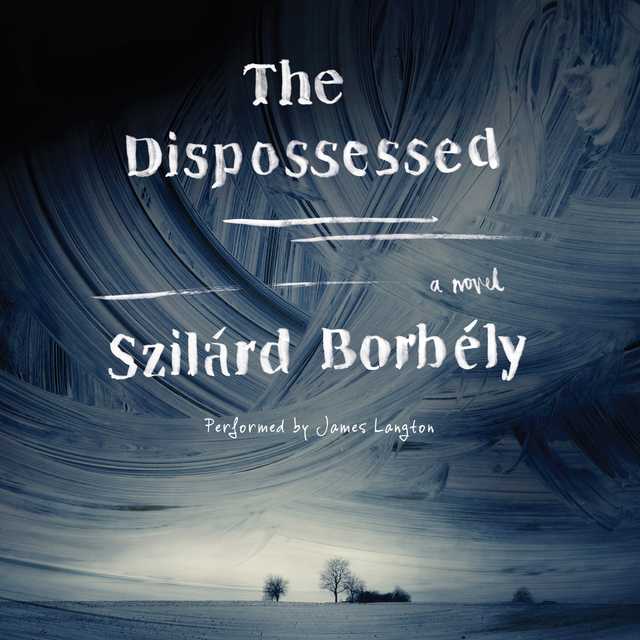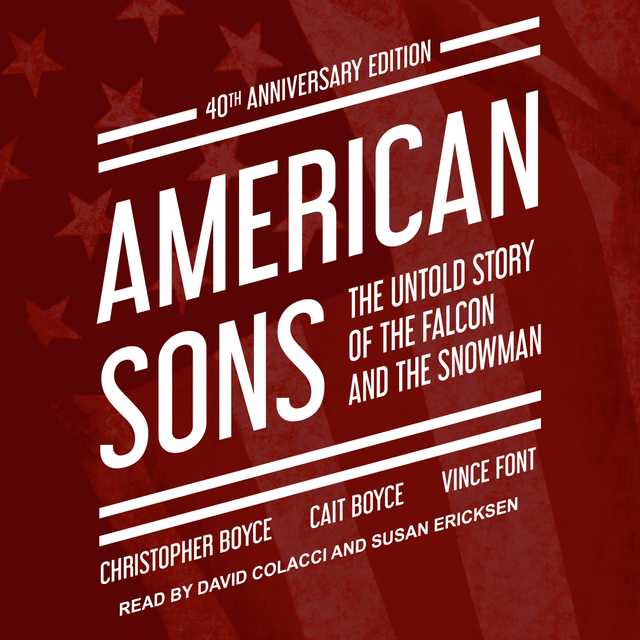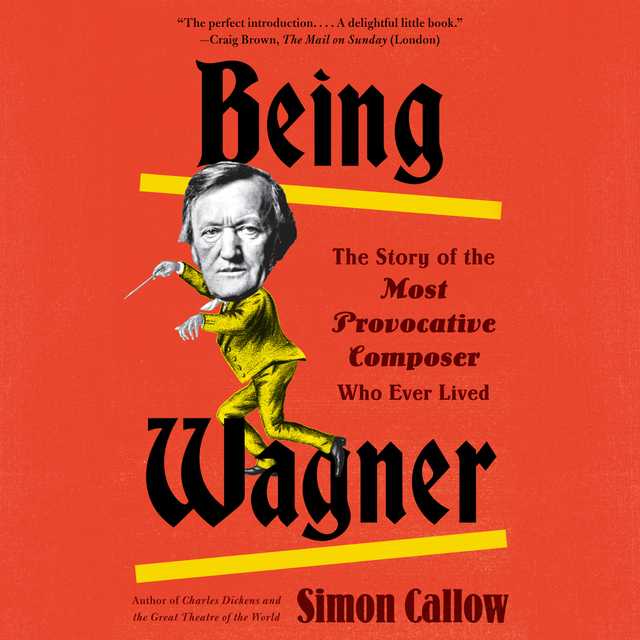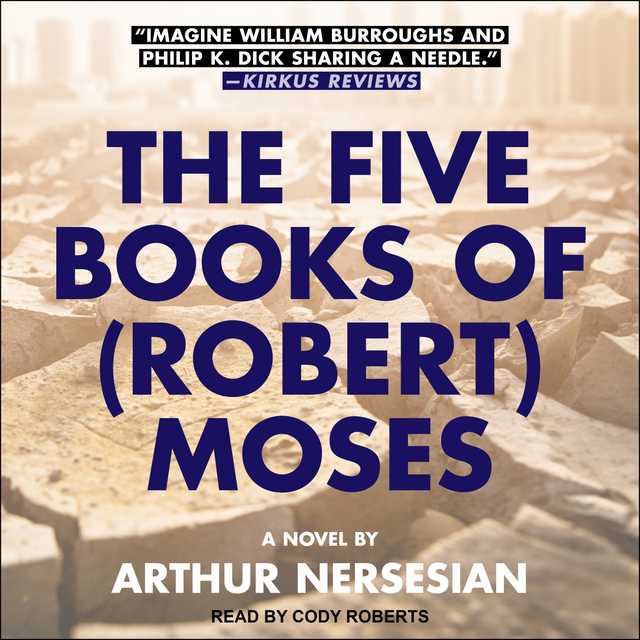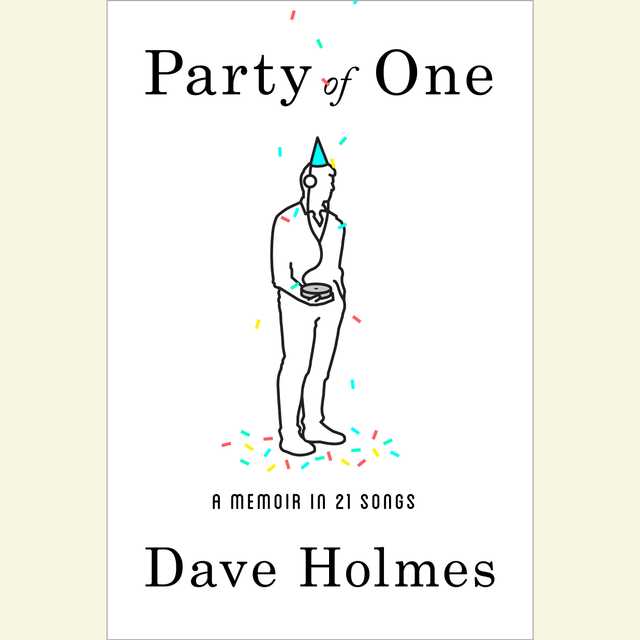The Dispossessed Audiobook Summary
A literary sensation on its original publication in Hungary, this hypnotic, hauntingly beautiful first novel from the acclaimed, award-winning poet and author Szilard Borbely depicts the poverty and cruelty experienced by a partly-Jewish family in a rural village in the late 1960s and early 1970s.
“No one has ever written so beautifully and at the same time so without pity about the suffering in the isolated provincial villages of Hungary…His sentences have a surgical precision, and their sustained rhythm only reinforces the power of what they evoke.”–Nicole Henneberg, Frankfurter Allgemeine Zeitung
In a tiny village in northeast Hungary, close to the Romanian border, a young, unnamed boy warily observes day-to-day life and chronicles his family’s struggles to survive. Like most of the villagers, his family is desperately poor, but their situation is worse than most–they are ostracized because of his father’s Jewish heritage and his mother’s connections to the Kulaks, who once owned land and supported the fascist Horthy regime before it was toppled by Communists.
With unflinching candor, the little boy’s observations are related through a variety of narrative voices–crude diatribes from his alcoholic father, evocative and lyrical tales of the past from his grandparents, and his own simple yet potent prose. Together, these accounts reveal not only the history of his family but that of Hungary itself, through the physical and psychic traumas of two World Wars to the country’s treatment of Jews, both past and present.
Drawing heavily on Borbely’s memories of his own childhood, The Dispossessed is an extraordinarily realistic novel. Raw and often brutal, yet glimmering with hope, it is the crowning achievement of an uncompromising talent.
Other Top Audiobooks
The Dispossessed Audiobook Narrator
James Langton is the narrator of The Dispossessed audiobook that was written by Szilard Borbely
Szilárd Borbely (1963-2014) is widely acknowledged as one of the most important poets to emerge in post-1989 Hungary. He worked in a wide variety of genres, including essay, drama, and short fiction, usually dealing with issues of trauma, memory, and loss. His poems have appeared in English translation in The American Reader, Asymptote, and Poetry. Forthcoming as well is his verse collection Berlin-Hamlet from NYRB Classics. Borbely received many awards for his work, including the Attila József Prize.
About the Author(s) of The Dispossessed
Szilard Borbely is the author of The Dispossessed
More From the Same
- Publisher : HarperAudio
- Abraham
- American Gods [TV Tie-In]
- Dead Ringer
- House of Sand and Fog
- Prey
The Dispossessed Full Details
| Narrator | James Langton |
| Length | 9 hours 16 minutes |
| Author | Szilard Borbely |
| Category | |
| Publisher | HarperAudio |
| Release date | November 15, 2016 |
| ISBN | 9780062645623 |
Additional info
The publisher of the The Dispossessed is HarperAudio. The imprint is HarperAudio. It is supplied by HarperAudio. The ISBN-13 is 9780062645623.
Global Availability
This book is only available in the United States.
Goodreads Reviews
Dagio_maya
September 13, 2019
Le spietate vite solitarie al confine - “Mi piacciono i numeri che non hanno un divisore. Sono come noi in questo villaggio. Diversi da tutti gli altri.”***”Camminiamo e restiamo in silenzio. Ci sono ventitré anni tra di noi. Il ventitré non si può dividere. Il ventitré è divisibile solo per se stesso. E per uno. C’è questa solitudine tra di noi. Non si può scomporre in parti. Bisogna trascinarsela tutta intera.” Così comincia l'unico romanzo scritto dall'ungherese Szilárd Borbély, accademico e poeta molto apprezzato in patria e morto suicida nel 2014 (un anno dopo la pubblicazione de “I senza terra”), forse sopraffatto da quella stessa solitudine di cui parla la voce narrante.Chi parla è un bambino (con molta probabilità, l'autore stesso) che racconta scavando nei ricordi di un'infanzia trascorsa in un piccolo villaggio del nord- est ungherese.Un confine fisico: tra Romania ed Ucraina, metafora di un 'esistenza in bilico.Precarietà ed emarginazione che circoscrivono con un'immaginaria e al tempo stesso, ben demarcata linea: un qua ed un là, un loro ed un noi.Il microcosmo del villaggio riflette tutte le contraddizioni e le incertezze di un'epoca travagliata: sono gli anni del regime comunista a cavallo tra il 1960 ed il '70.Le bocche che masticano la parola Progresso e le menti che restano ancorate ad un retaggio di medioevali superstizioni.L'Unione Sovietica è la severa ed attenta madre che controlla ogni suo figlio e lancia diktat a cui non si sfugge. La caccia ai kulaki come nemici del popolo sovrano è spietata e possedere la terra se prima era un vanto diventa una vergognosa colpa da lavare. Strascichi del passato nazista rimangono in una terra dove padroneggiavano le antisemite e temute Croci Frecciate. La miseria è fatta di.... ...sapori , odori, vuoti materiali e di mancanze affettive...”La stanza è piena dell’odore del latte. Dell’odore della cacca. Dell’odore della miseria. Solo dell’odore della mamma ce n’è poco. Di mamma non ce n’è abbastanza. Non ce n’è abbastanza per nessuno.” ...violenza fisica...”Mia madre dice che anche loro sono stati picchiati, perciò credono che si debba fare così.«Così si diventa uomini» dicono di solito.«Me ne sarai grato» dicono quando finiscono di picchiare.” ...violenza verbale... «Ti ho cacato io! Non mi metto a discutere con la mia merda!» Microcosmi che sono circoscritti ad una stanza di terra battuta e fango e che comunicano con parole proprie che ricordano altre appartenenze. Perchè è anche un problema di identità L'identità è una carta stropicciata e maltrattata dal tempo su cui le lettere a malapena si riescono a riconoscere. Il piccolo Goga Bobonka è confuso-«Chi siamo?» chiede in continuazione.E’ il nonno a chiarire qualcosa:” «Noi siamo rumeni. Nel villaggio ci chiamano “i trapiantati”. Ma sei hai la terra non ti possono dire: “Va’ dove ti pare, aria!” Il contadino anela alla terra come chi affoga anela all’aria. Tu non dimenticare che sei rumeno! Fai come se fossi ungherese. Anche gli altri fanno così. Ma non dimenticano chi sei tu. Gli ungheresi sono come il fango. Si tirano giù a vicenda. Ma i rumeni sono leggeri. Le parole rumene hanno preso il volo, ma aleggiano ancora sulla nostra testa.» “Quindi occorre fingere di essere ungheresi conservando la coscienza delle origini romene.Non si può fare altrettanto con un'altra parola:«...ebreo...».Una parola velata, sussurrata. Un oscuro segreto, una vergogna.” Ebreo è il rimorso di coscienza ed ebreo è il senso di colpa che solo il disprezzo può alleviare (…) «L’ebreo è colui che tutti odiano. Colui che respingono solo perché ebreo» dice mia madre. «Colui di cui hanno accettato l’aiuto, ma non possono perdonargli di averli aiutati. Colui che ha una stella sulla fronte. Colui che non accettano. Come non accettano nemmeno noi »” I senza terra - Se n’è già andato Messiash? E' tutto troppo duro, troppo squallido perché non si cerchi sollievo e rifugio in una speranza. Aspettare un cambiamento che salvi:”«Oggi giochiamo ad aspettare il Messia.»«Da quale parte arriverà?» chiede mia sorella che sta subito al gioco.«Non è lo stesso? Facciamo che siamo ebrei» dice mia madre. “Con mia madre facciamo che aspettiamo il Messia, come gli ebrei. Nel cielo sereno spuntano già le stelle. È venerdì sera. È già cominciato lo Shabbat. Ma non è arrivato nemmeno oggi. Comunque non è venuto. Lo abbiamo atteso invano. Mia madre racconta di Gerusalemme. E della regina Ester. E del fatto che in futuro lo festeggeremo insieme. Ma non qui” “...fino a quando vi saranno sulla terra ignoranza e miseria, i libri come questo non potranno non essere inutili.” (Victor Hugo- Premessa alla Prima Edizione de “I miserabili) La miseria non vive solo di sottrazioni. Ci sono accumuli che altrimenti non si trovano. Odori che le sono propri. Un esercizio alla brutalità a cui ci si sottopone da bambini con una ritualità a cui non si può sfuggire.Comportamenti considerati necessari perchè nel quadro compaiano le giuste proporzioni e non manchi nessuna pannellata. L'immagine della miseria è quella dell'orrido.Una lettura dal sapore metallico.Difficile non pensare alla Kristóf.Difficile esprimere appieno quanto mi sia piaciuto questo libro….
Paltia
October 06, 2019
Transports you to a place of brutal darkness visible from even the great distances of time and place.
Gavin
June 17, 2020
Armut macht edel, hilfreich und gut! Armut macht edel…hilfreich und….gut? Selten wurde dem Leser so traurig, konsequent und verstörend gnadenlos vor Augen geführt, daß Armut eben nicht edel, hilfreich und gut macht, sondern oftmals zu Hass, Wut, Ausgrenzung, Verachtung und Gewalt, wie es Szilárd Borbély in seinem Roman DIE MITTELLOSEN (NINCSTELENEK; erschienen 2013, Dt. 2014/16) beschreibt.Autobiographisch anmutend erzählt er aus dem Dorf im Nordosten Ungarns, nah den Grenzen zur Ukraine und Rumänien, in welchem er aufwuchs. Geschildert wird die Zeit Ende der 60er und Anfang der 70er Jahre des letzten Jahrhunderts. Das Dorf lebt in bitterer Armut, rückständig, was Infrastruktur, Versorgung und gesellschaftlichen Umgang betrifft. Der assoziativ zwischen den zeitlichen Ebenen seiner Kindheit springende Ich-Erzähler berichtet davon, wie er schon früh schwere körperliche Arbeit verrichten musste, er erzählt vom Hunger und davon, wie die Dorfgemeinschaft unter den „neuen Herren“ dafür sorgte, daß diejenigen, die während der Horthy-Diktatur mitgemacht haben oder auch Opfer waren, sich ruhig verhalten aber auch nie vergessen, wer sie waren, wer sie sind. Die Mitläufer werden stigmatisiert, das Leid der wenigen Juden, die nach dem Krieg zurückgekehrt sind, wird beschwiegen. Ein allgemeiner Antisemitismus herrscht nach wie vor. Die Familie des Erzählers wird gleich in mehrerlei Hinsicht angefeindet: Sie sind nicht aus dem Dorf, sondern – auch wenn das nun bereits zwei Generationen zurückliegt – als Ruthenen aus Rumänien gekommen, zumindest ein Großvater hat unter Horthy gedient und vertritt nach wie vor die militaristischen, revisionistischen und reaktionär-faschistoiden Ansichten des Regimes, zudem ist der Vater des Erzählers angeblich – so will es der Dorfklatsch wissen und so haben seine Geschwister ihn einst um seinen Erbanteil geprellt – der uneheliche Sohn eines Juden.Borbély nutzt lange eine einfache, redundante Sprache und erzählt fast rigoros aus einer kindlichen Perspektive. Das ist gewöhnungsbedürftig für einen erwachsenen Leser. Kurze Hauptsätze, kaum Einschübe, keine Nebensätze – man findet sich in einer Kindererzählung wieder, die von Brutalität, Vulgarität und permanentem psychischen Stress berichtet. Der Vater ein Nichtsnutz in den Augen einer ebenso verzweifelten wie in ihren Urteilen gnadenlosen Mutter, diese selbst ein psychisches Wrack, welches den Kindern – neben dem Erzähler eine Schwester und ein Neugeborenes, das im Laufe der erzählten Jahre bald stirbt und dessen Tod außer der Mutter niemand beweinen mag – wieder und wieder mit Selbstmord droht, um endlich all das Elend hinter sich zu lassen. Eine Tante lebt mit im Haushalt, die möglicherweise geistig zurückgeblieben ist, möglicherweise aber auch in den Schrecken des Krieges und der Diktatur einen Rückzug in den Wahnsinn angetreten hat.Es gibt hier keine stringente Erzählung, keine „Geschichte“ im Sinne eines fortlaufenden Plots. Borbély gibt im Grunde reine Alltagsbeobachtungen wieder, bei denen er hin- und herspringt, aus der Perspektive des sechsjährigen zu der des elfjährigen und zu jener irgendwo dazwischen. Anlaß für diese Sprünge sind einzelne Szenen, Alltagsszenen, die ihn an frühere Momente erinnern oder veranlassen, dem Leser bestimmte Zusammenhänge zu erläutern, bis er gelegentlich zur Ausgangssequenz zurückkehrt, diese aber auch oft fallen lässt. Er erzählt vom Leben im Dorf, davon, wie der Vater keine Arbeit findet, sogar systematisch von der Arbeit ausgeschlossen wird, er berichtet davon, wie die beiden Großväter den Kindern ganz unterschiedlich „Geschichte“ vermitteln, immer wieder vom Gegensatz von „Kulaken“, Bauern und Zugezogenen, er berichtet von der alltäglichen Gewalt, die gegen die Kinder ausgeübt wird – durch die Mutter, durch die Lehrer, manchmal durch Gleichaltrige – und davon, wie diese Gewalt weitergegeben wird an Schwächere, zumeist Tiere, die oft mit Hingabe gequält werden. Überhaupt sind Gewalt und die Vulgarität der Erwachsenen eines der zentralen Themen dieser Schilderungen. Es ist eine gnadenlose Welt, in der Mitleid letztlich bestraft wird. Die Hühner leben mit den Menschen gemeinsam in den Häusern und werden doch geschlachtet, wobei dies in Abwesenheit des Vaters, als er endlich Arbeit findet, dafür aber weit wegziehen muß, nicht unbedingt fachmännisch ausgeübt wird. Die Katzen werden gequält, man lässt sie verhungern oder tötet sie rituell, um Neugeborenen das Träumen auszutreiben. Würfe, die nicht gebraucht werden, ertränkt man in der Sickergrube oder erschlägt sie mit einem Knüppel. Die Kinder werden beschimpft, üble, teils obszöne Beleidigungen sind an der Tagesordnung, auch durch die eigenen Eltern und Verwandten.Im Laufe dieser 320 Seiten taucht der Leser in eine Welt ein, die unglaublich weit weg, die kaum vorstellbar erscheint, und dennoch mit einer Beiläufigkeit geschildert wird, die wenig Zweifel an ihrer Authentizität zulässt. Der Suhrkamp-Verlag hat seiner Ausgabe zwei Texte von Borbély beigestellt, die das Leben des Autors ein wenig erhellen und die Grenze zwischen Autobiographie und Fiktion erklären. Der erste – VERLORENE SPRACHE – bietet noch einmal einen Kurzabriss der Kindheit Borbélys, wobei er dezidiert auf den Verlust der Sprache eingeht, darauf, wie die Kinder in dieser Welt aus den unterschiedlichsten Gründen – familiären, gesellschaftlichen wie politischen – nicht reden sollten und durften, wie sie, die ihre Eltern zu Siezen hatten, in einer zunehmenden Sprachlosigkeit versanken und wie er, der Schriftsteller, ein Leben lang – ein kurzes Leben lang, denn er brachte sich 2014 auch aufgrund einer schweren Depression um – um diese verlorene Sprache kämpfen, sie sich geradezu zurückerobern musste. Dieser Kampf um Sprache ist im Text selbst ebenfalls dokumentiert, da die anfänglich so kindlich anmutende Sprache langsam auflockert, vielschichtiger wird, bis auf den letzten Seiten des Haupttextes schließlich ein fast achtzehnjähriger spricht, der sich bereits eine eigene Sprache, einen eigenen Duktus angeeignet hat.Der zweite nachgeschobene Text – AUCH DIE ERINNERUNG IST FIKTION – nähert sich dezidiert dem Spannungsverhältnis zwischen der eigenen Erinnerung und der Konstruktion von Erinnerungen, ein Thema, das nicht nur Borbély nachhaltig beschäftigt hat. In Ungarn ist Borbély vor allem als Lyriker bekannt geworden und in Erscheinung getreten. Von Péter Esterházy und Péter Nádas maßgeblich unterstützt, konnte er nicht nur veröffentlichen, sondern auch an der Hochschule von Debrecen lehren. In DIE MITTELLOSEN scheint er sich von der Erinnerung und der Qual, die sie bedeuten kann, freigeschrieben zu haben. Es ist ein manchmal schwer erträglicher Text, ein radikal subjektiver Text, der dennoch einen Einblick in eine Zeit in einem Land bietet, die gerade für westlich sozialisierte Leser nur sehr schwer nachvollziehbar, vorstell- und erfassbar ist. Doch scheint hm dies nicht wirklich geholfen zu haben. Wie zwei Nachworte der Übersetzer Heike Flemming und Lacy Kornitzer belegen, muß Borbély schwer unter der jüngsten Entwicklung Ungarns gelitten haben. Zu seinen sicherlich persönlichen psychischen Problemen gesellte sich eine tiefsitzende Angst nicht nur um das eigenen (soziale und gesellschaftliche) Leben, sondern auch um ein Land, das ihm trotz aller Beschwernisse eine Heimat war und das sich zusehends von den vermeintlichen Errungenschaften der Demokratie nach den Wendejahren 1989/90/91 wieder verabschiedet und neuen diktatorischen Versuchungen zu erliegen scheint.DIE MITTELLOSEN ist bei aller scheinbaren sprachlichen Redundanz, bei aller Einfachheit der Mittel, kein leicht zu lesender Roman, sondern fordert den Leser vor allem emotional. Man will sich dieser so neutralen Kind-Sicht auf dieses Leben entziehen und kann es doch nicht. Man will dieses Buch weglegen und kehrt doch immer wieder zurück, um die nächsten 20, 30 Seiten zu lesen….zu erleiden. Sicherlich ist dies Literatur im besten Sinne des Wortes, sicherlich ist dies aber auch eine Zumutung an jeden Leser. Eine lohnende Zumutung allemal..
Nick
January 18, 2019
The poet Szilard Borbely's account of his youth in post-World War II Hungary, where the vicious anti-Semitic, anti-Rom Hitler allies has given to the vicious anti-Semitic, anti-Rom Stalin allies. Borbely's father asked him to refrain from writing about his youth until after the older man died, and it is easy to see why. The narrator's family has lost whatever they had as pre-war kulaks and are accused of being Jews, perhaps because of that. The witless father cannot hold a job, perhaps because of the family's reputation but also probably because of his own. The family is so poor that boy wears his older sister's clothes and expects to hand them down to the younger son. What imagination there is comes out in the inventive cursing, which generally references God's genitals (hint: he's male). Borbely is utterly disciplined: never is there a passage in which the narrator seems anything other than a boy, with no smart or otherwise superior novel-writer visible behind him. But this is a grim world, in which those with little make themselves feel better by persecuting those who have less. The local Rom (nicknamed the "Messiyah") can only work cleaning latrines. The only Jew in town comes back to find his family gone, no doubt exterminated, his house destroyed--as the narrator lets slip, in part to destroy loan records. And those who have least of all suffer the most, including animals. Those unable to stomach animal torture are advised to walk on by. But those moments are all of a piece in this world that is difficult to imagine and miserable to contemplate.
jeremy
February 12, 2017
Bleak, brutal, and often emotionally unbearable, szilárd borbély's autobiographically-inspired fiction, the dispossessed (nincstelenek – már elment a mesijás?), is the tale of a young, nameless boy and the day-to-day struggles of his family in post-world war ii hungary. the late hungarian poet's novel is the story of excruciating poverty, neglect, cruelty, alcoholism, humiliation, hatred, trauma, loss, class, anti-semitism, suffering, defeat, and memory. borbély's story (and his direct prose) leaves little room for color or flourish, as the savagery and inhumanity of his characters' meager existence overwhelms entirely. doleful and merciless, the dispossessed is a vivid, striking portrait of destitution – one bereft of all but the will to endure. we walk and we are silent. between us there are twenty-three years. twenty-three cannot be divided. twenty-three can be divided only by itself. and by one. there is so much solitude between us. it cannot be dismantled into parts. it must be borne as one. *translated from the hungarian (and introduced by) ottilie mulzet (krasznahorkai & gábor schein)
Katalin
January 06, 2014
Its style is the most striking for me: the short, 'knocking' sentences,the way of speaking of the protagonists living in a village in the back of beyond....While we get to know the weekdays of the villagers, several shameful episodes of the history of the recent past come to light. Hard to face the poverty-stricken ,outcast and contempted people's everyday struggles because they are considered strangers or rather intruders coming from Romania to a Hungarian settlement.The conflicts between the two neighbouring countries are shown in the novel from a new,unusual point of view.....
Maurizio
April 22, 2018
"Ci sono momenti in cui si è più perspicaci e si vede più chiaro di quanto sia mai successo prima. O dopo, in un qualsiasi altro momento. Si è più perspicaci di quanto lo si sia abitualmente. All'improvviso si aprono le orecchie e si schiudono gli occhi, come se ne cadesse via la cataratta e si penetrasse con lo sguardo nei misteri del destino. Li si penetra, senza però riuscire a concepirli. Solo si intuisce qualcosa di cui si sa esattamente che è così. Tutto qua." (p. 258)
Doria
May 07, 2021
This is a remarkable book, intelligently written by a keenly perceptive poet, who had extraordinary insight and humane understanding of youthful memories and conceptions of a starkly cruel and confoundedly confusing world. I am reticent to recommend it, though, because the experience of reading it is nothing short of traumatic. I have great reverence for any writer who can distill the emotional life of a young boy into such purely rendered language that it searingly passes even the test of translation and time to burn itself into a stranger’s heart. But that doesn’t mean you should run out and read it. As many other readers have remarked “This book wasn’t for me”, and they are correct. On the other hand, if you are psychologically prepared to confront a wide and nakedly laid bare assortment of physical and emotional trauma, and if you also happen to have a decent grounding in the history of Hungary - a depressing litany of lost hopes, missed chances and poor choices that perfectly mirror the despondent lifelines of most of the characters in The Dispossessed - than reserve a copy from the library right now. Better yet, buy your own copy, so you can read it unrushed and in small doses, as I did. At all costs, resist the urge to binge-read; too much trauma - even of the historical-literary variety - swallowed down too quickly will manifest unpleasantly in the subconscious. For, as distant and foreign as the events may seem as they spool out in their haltingly uneven and achronological fashion, filtered as they are through a bewildered child’s eyes, every word rings true, and lands as a heavy drop of rain. Too much at a time will accumulate and leave you feeling sodden and soiled. Take your time; it’s not a book to be savored, but to be endured and pondered, reverently.
Karl
April 25, 2017
A story of desperate struggle and poverty. It is sad and cruel, yet touching and brutally honest.However, I am not sure if I would recommend it, even though I gave it a high rating. It is unbearably raw, brutal and vulgar in every aspect. Vulgar people, vulgar language....I found it offensive and disturbing at times. Seen through the eyes of a very young person it is the story of family love, pain and faint hope.P.S. The author committed suicide in 2014, shortly after the book was published
julieta
May 11, 2017
Durísimo libro sobre una familia en Hungría en los años 60. Muy realista y seco a la vez. Pero la historia la cuenta un chico de 11 años, y eso le da algo cercano, o más bien diría, hace más fácil acercarte a la historia. Se va brincando en el tiempo, y contando la entrada y salida de personajes, que estuvieron, que ya no están. Ser húngaro en el siglo XX si que estaba difícil. Es precioso y difícil libro, pero si lo recomiendo.
Frequently asked questions
Listening to audiobooks not only easy, it is also very convenient. You can listen to audiobooks on almost every device. From your laptop to your smart phone or even a smart speaker like Apple HomePod or even Alexa. Here’s how you can get started listening to audiobooks.
- 1. Download your favorite audiobook app such as Speechify.
- 2. Sign up for an account.
- 3. Browse the library for the best audiobooks and select the first one for free
- 4. Download the audiobook file to your device
- 5. Open the Speechify audiobook app and select the audiobook you want to listen to.
- 6. Adjust the playback speed and other settings to your preference.
- 7. Press play and enjoy!
While you can listen to the bestsellers on almost any device, and preferences may vary, generally smart phones are offer the most convenience factor. You could be working out, grocery shopping, or even watching your dog in the dog park on a Saturday morning.
However, most audiobook apps work across multiple devices so you can pick up that riveting new Stephen King book you started at the dog park, back on your laptop when you get back home.
Speechify is one of the best apps for audiobooks. The pricing structure is the most competitive in the market and the app is easy to use. It features the best sellers and award winning authors. Listen to your favorite books or discover new ones and listen to real voice actors read to you. Getting started is easy, the first book is free.
Research showcasing the brain health benefits of reading on a regular basis is wide-ranging and undeniable. However, research comparing the benefits of reading vs listening is much more sparse. According to professor of psychology and author Dr. Kristen Willeumier, though, there is good reason to believe that the reading experience provided by audiobooks offers many of the same brain benefits as reading a physical book.
Audiobooks are recordings of books that are read aloud by a professional voice actor. The recordings are typically available for purchase and download in digital formats such as MP3, WMA, or AAC. They can also be streamed from online services like Speechify, Audible, AppleBooks, or Spotify.
You simply download the app onto your smart phone, create your account, and in Speechify, you can choose your first book, from our vast library of best-sellers and classics, to read for free.
Audiobooks, like real books can add up over time. Here’s where you can listen to audiobooks for free. Speechify let’s you read your first best seller for free. Apart from that, we have a vast selection of free audiobooks that you can enjoy. Get the same rich experience no matter if the book was free or not.
It depends. Yes, there are free audiobooks and paid audiobooks. Speechify offers a blend of both!
It varies. The easiest way depends on a few things. The app and service you use, which device, and platform. Speechify is the easiest way to listen to audiobooks. Downloading the app is quick. It is not a large app and does not eat up space on your iPhone or Android device.
Listening to audiobooks on your smart phone, with Speechify, is the easiest way to listen to audiobooks.

